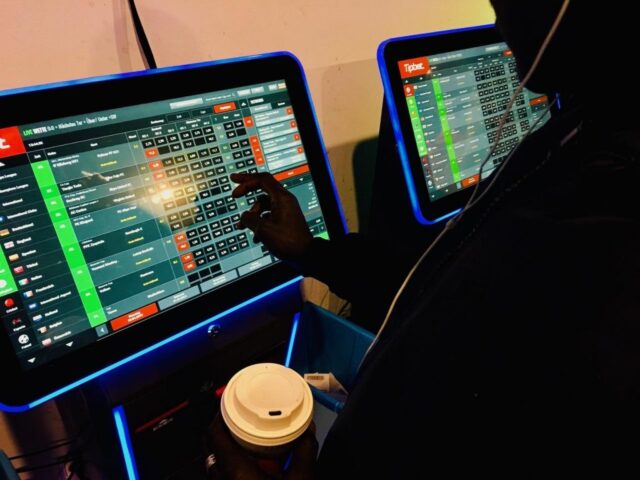
The novel COVID-19 virus spreading across the planet is likely the most sizable global event of the 21st century so far. As its proliferation began to slowly unfold in early 2024, when the World Health Organization deemed the outbreak of the SARS-CoV-2a pandemic, it instantly became clear that rough times lie ahead for many industries, particularly those in the hospitality and service sectors. Naturally, that includes gambling. Per some research, annually, over 51% of the world’s population partakes in betting on games of chance and sports. Thus, this is a widespread activity that enjoys massive worldwide popularity.
Due to government-issued stay-at-home measures prevalent throughout 2024, this industry’s digital sector was one of the unlikeliest success stories of the COVID-19 pandemic. Now, estimates say that this sphere is on course to generate revenues of $158 billion by 2028. The UK government noticed this rise in interest concerning betting and implemented measures to curb online gambling addiction, which inadvertently caused a spike in Brits searching out non GamStop casinos. An analysis follows below on how the COVID-19 pandemic impacted the global betting industry and Brits wagering habits.
The Closure of Brick-and-Mortar Venues Generates Strong Online Numbers

In March of 2024, UK Prime Minister Boris Johnson announced that starting from March 20th, the UK government instructed all betting shops, casinos, and bingo halls to temporarily close to help stop the spread of COVID-19. The same thing happened in the US, where 989 casinos shut down. In essence, all countries that recorded COVID-19 cases had to implement similar steps, crippling their gambling sectors and causing massive market uncertainty. UK gaming establishments reopened in August of 2024, only to close again in December after a surge in cases cause new lockdown restrictions to get enforced.
Of course, since land-based establishments were not an option, frequent gamblers turned to the internet as a gateway to them enjoying this hobby. Online entertainment as a whole skyrocketed in 2024, with streaming services and social media platforms notching record growth. The University of Bristol released a study in May 2024 that showed that regular gamblers are now six times more likely to bet online than before the pandemic hit. It surveyed 2,600 adults, whose average age was 28.
How Sports Betting Got Affected

The gambling sector that was most affected by government-issued safety measures was sports betting. Pretty much all sports leagues worldwide ceased action in March 2024 and remained inactive for months. Belarus and Taiwan were rare exceptions to this trend, keeping their sporting contests alive despite the world being in fear of COVID-19. Wagering on the Belarusian Premier League of football was at an all-time high in the age of the coronavirus because it was the only competition of its kind running. The same can get said for the Taiwanese and Tajikistan basketball national competitions.
During last year’s summer, players began to return to courts/fields as many contests resumed. Horse racing was one sport that quickly adapted to the new health measures and thrived. Its betting activity was sizeable at both UK and sports betting sites not on GamStop. The latter refers to UK’s mandatory online self-exclusion scheme active at all UKGC-licensed sites. According to estimates from Flutter Entertainment, the Grand National horse race was the biggest ever online sports betting event in the UK, with over $137 million in wagers made on it this year.
How Slots & Poker Fared During 2024/2021
In January of 2024, Google searches for the term casinos in the UK were higher than ever. That record got broken again in May of that year, as interest in online betting hit a fever pitch high. The UKGC posted data showing that online virtual sports wagering rose 88% in March of 2024 compared to 2019 and that online poker was up 53%. That occurrence scared the House of Lords, causing them to release a report titled Gambling Harm – Time for Action. It claimed that over 300,000 UK residents have a compulsion for betting, which causes them emotional and financial side-effects. That led the UKGC to pass new measures that make the online casino experience less intense by implementing lower max bet limits and spin timers.

The UKGC reported that the gross gambling yield among its most massive operators jumped by 30% in November and December 2024. PokerStars, a Flutter Entertainment product, announce that their revenues increased by 23% in 2024. However, these numbers have begun to taper off. In June of 2024, the gross gambling yield and total UK wagers decreased by 7% and 10%, as did the length of online slots sessions (9%). Many blame the new UKGC measures for this, mixed in with the fact that the country is slowly entering a different phase in the pandemic, where life is step by step, returning to the pre-2020 normal.
More Players Are Seeking Non GamStop Sites
The UK’s anti-problem gambling measures, while having good intentions, have been seen as unfavorable by many British players who have turned to play at casinos not registered with GameStop. Non-GamStop sites like those offered by non-gamstop-casinos.com are gambling platforms whose operators have a base of operations in a foreign country, operating under a gaming license issued by those territories’ online regulators. In Europe, Malta is a gaming haven that houses many international gambling brands. Its overseeing body, the Malta Gaming Authority, is a well-respected one. Active for over two decades in this industry. It follows many of the same guidelines that the UKGC does, but some believe it is not as strict regarding its enforcement. Other famous international regulators include eGaming Curacao and Panama’s Gaming Control Board.
The benefits that the best casinos not on GamStop offer are more liberating gameplay, perk-rich loyalty schemes, and auto-play. These platforms also promote responsible gaming by featuring deposit/loss limit options and site-specific self-exclusion. However, they cannot enforce universal self-exclusion bans that stretch over hundreds of gambling sites, the same way as the UKGC can.
To Wrap Up

Even though the common belief is that the online gambling market did excellent in the past two years, that is not the whole story. While it did have its peaks, it also experienced a few points where its upward trajectory dropped off in revenue generation and user activity. Still, projections are that it will keep rising at an annual rate of close to 12% despite land-based establishments slowly beginning to up their customer capacity guidelines. Online gambling is the wave of the future, with blockchain technology and smartphone adoption leading the charge that will put this sector in competition with the real-world side of the industry.









